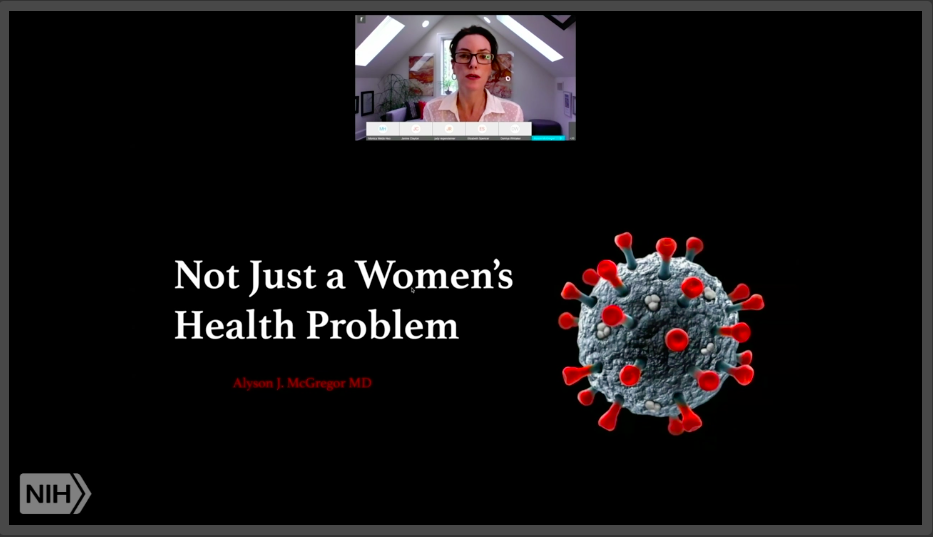Not Just a Woman’s Health Problem

This is the first in a series of blog posts exploring COVID-19 from a women’s health perspective.
On October 20, 2020, the Office for Women’s Health Research (ORWH) at the National Institute of Health (NIH) held its 51st Meeting of the NIH Advisory Committee on Research on Women’s Health. The panel titled, “COVID-19 and the Health of Women” featured insightful presentations on the pandemic’s distinctive impact on women’s health. This blog series will explore each of the three sessions.
Panelists reported mounting evidence that COVID-19 may affect women and men differently. Although men and women are infected at the same rate, more men than women are dying from this virus. Why is this happening? In her presentation titled “Not Just a Women’s Health Problem”, Dr. Alyson McGregor, discussed potential, contributing factors. The receptor, ACE-2R, that interacts with the COVID-19 spike protein is more abundant in men, particularly men with cardiovascular disease. TMPRSS2, a protease that tailors the spike protein to fit ACE-2R, is primarily expressed in the prostate and can be upregulated by male sex hormones. Sex differences in sociocultural behaviors likely contribute to poorer outcomes in men as well — studies show that men are less likely to wash hands or wear a mask.
We know from other viral infections that men and women respond differently to vaccines. Data from the influenza vaccine reveal that women have a higher magnitude immune response, lower hospitalization and mortality, and more vaccine-induced adverse events. Unlike influenza patients, COVID-19 patients can still be symptomatic after two weeks; such patients are referred to as “long-haulers” and are more likely to be women. Understanding sex differences could improve the efficacy of vaccines leading to more positive outcomes from a public health perspective. “We need the right evidence and the right time,” said Dr. McGregor.
You can watch the full ORWH event here.
This blog post was written by Keila Miles, PhD, a science policy fellow at Research!America. The Science Policy Fellowship is sponsored by the Howard Hughes Medical Institute.




